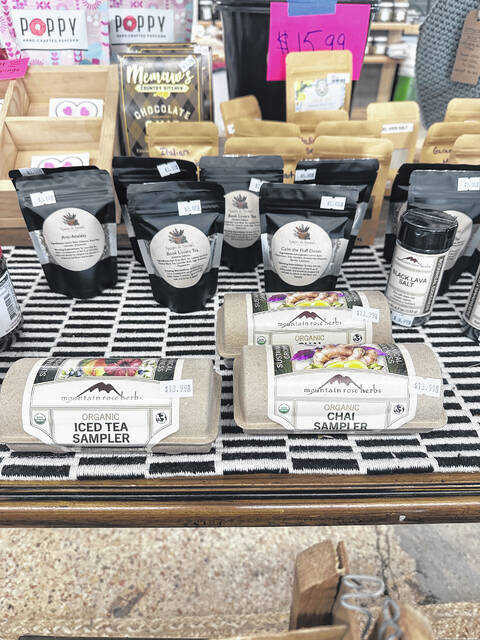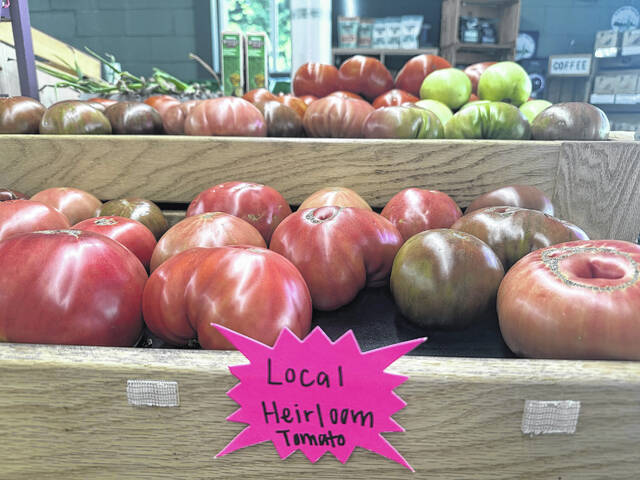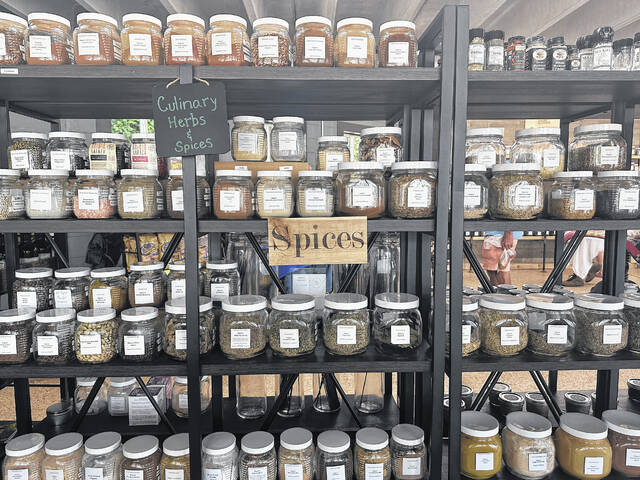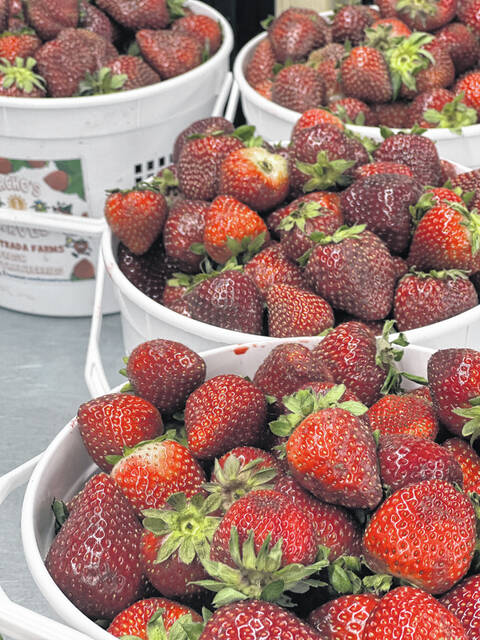CENTRAL — All season long Madison and Megan Gilstrap work behind the counter at their dad’s shop, Tiger Valley Market. As far as job placements go, the Gilstrap duo don’t have any complaints. “This is fun,” Madison says. “Yeah,” Megan agrees. “It’s way less stressful than working for people who you don’t know that well.”
Unlike the Gilstrap girls’ produce, sisterhood is always in season. But behind the counter next to Madison, Megan explains what produce is best to buy seasonally.
“Strawberries are in season right now, and squash and zucchini are also in,” Megan said. “Peaches as well. Cucumbers are in season, they’re local, too. Blackberries and blueberries are coming in.”
Megan takes into account local rain and individual farmers’ seed type and growing schedules.
On the day that Madison and Megan are interviewed, only the two of them were running the shop. At a later visit, Megan and the girls’ father, Tim, and an extra employee ran the show.
Tim prides himself on the unique insider knowledge of the land, produce, and perhaps most importantly, the people. Megan’s in-depth understanding of growing seasons and how the weather and topography intersect appears to be just the tip of the iceberg.
Tim explained how the June crop was from Georgia, requiring a relative to drive the produce halfway to Clemson. The grower also happens to be a firefighter in his small town — a firefighter delivering cantaloupes to Central.
At Tiger Valley Farm and Market, stories like these abound. Take for instance, this year’s strawberry crop. While the Gilstrap clan grew strawberries during this season, an unavoidable disease struck. Luckily, Tim knew someone further up the state with better luck and a slightly different climate. Thus, when two separate parties of customers flooded the checkout counter with strawberry baskets, the Gilstrap girls launched into their educational speech.
Taking the time to educate customers upon check out, Megan and Madison warned that the strawberries needed to be taken out of the basket to avoid mold before being placed on the counter or in the fridge. The juicy, wet strawberries settled on top of each other in the carriers, having been freshly washed.
Megan and Madison finish checking out the customers at a similar rate. “All right, good. Thank you, you guys,” Megan said. “Have a good one,” Madison adds.
The friend who grows strawberries was successful, Megan says, because his crop can withstand up to about 85-ish degrees.
“As long as it’s not getting hotter than 85 for more than an hour or so every day, they do very well.”
Without science, technology, engineering, and math (STEM), close calls like the strawberry debacle are nearly impossible to solve. In that way, STEM holds a close connection to the work of farmers and shopkeepers alike. From inventory to strawberry temperatures.
When asked if they think of themselves as women in STEM, Megan replied, “Kinda, yeah. I was going to say, yeah, kind of. You [Madison] probably do more of the farm work than I do.”
Madison, who lives on the farm, does “most of the farming” including “growing, picking, planting.” It’s “A lot work” she says.
For Megan, the story is a bit different.
“For me, the hardest day of the week is truck day when we get all kinds of new stuff in,” she said. “I’m over there unloading 150 melons and everything else. Those days, you’re thinking it’s way too hot to be outside doing this.”
Aside from natural sweets like strawberries, cantaloupes and melons, the market also offers baked goods.
“We have lots of baked goods. Buns, candy, cookies, and stuff from local bakers,” Megan said. Dough Mama’s, a custom order bakery, keeps their goods on a circular table up front next to rows and rows of jars of spices. Cinnamon rolls and soft, sweet breads curl up in plastic wrap sealed with a twist tie, fresh to eat.
Similarly, beverages are also a mainstay of the shop, with a variety of drinks.
In addition to teas, Madison says, “We have water, milk, sodas. We do kombucha, which is like our biggest thing. A lot of people love kombucha.”
While kombucha isn’t as popular among South Carolinian-born, people who are new to the area can get a taste of the local brew while they select their seasonal produce, and in some cases, spices.
Recently, Tim learned of three seasonings that local Desi (meaning Indian, Pakistani, etc.) people were looking for after an Indian shop shut down recently. Caring for the community, Tim ordered the seasonings and kept them at a low price of $1.25 for about .56 oz each. Together, Za’atar, Baharat and Ras El Hanout seasonings contribute to a sense of belonging that Tim and his daughters hope to cultivate.
“We shoot to carry the absolute best product that we can carry,” Tim said. “And we really keep our prices low because I try to provide pricing for the average working person. That’s one of the reasons we came here. Whenever we opened, we made a deal with the town of Central for our building. My presentation was that I would have pricing that was economically friendly for all people. Whether you don’t make a lot of money or you make a lot of money, you’re gonna be able to come here and be able to afford to eat healthy.”
At home, health is of importance too. Megan’s home in particular mostly revolves around what she finds in the store, listing bulk organic laundry soap as a favorite item.
“I use almost everything here. The shampoos, the conditioners, Anything I can buy here that is all natural versus like, going to the store and buying it, I buy from here. I obviously don’t buy any produce from anywhere else,” Megan said.
Meanwhile, for Madison it’s back to school at the farm already. Madison says the family will soon start planting pumpkins and mums.
“The farm is never-ending,” says Madison. “We get about a two-week break around Christmas. That’s about it. And then it’s, you know, back to getting ready for springtime.”
There are some crops that are year-round mainstays, however.
“We do hydroponic lettuce year-round,” Megan said. “And it is beautiful. It tastes amazing. It’s very hard to go back to normal lettuce after you’ve had hydrochronic lettuce because it tastes so much cleaner.”
For “clean-tasting lettuce,” cleaning and house supplies, essential oils, fresh coffee, rare and common spices and seasonings, beverages, sweet treats and produce, Tiger Valley Market and the sisters who work there have got Pickens County covered thanks to a business plan made by Tim and accepted by the town of Central.





